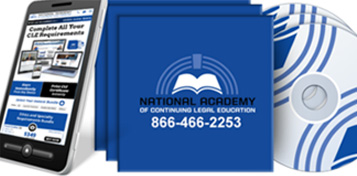About This Course
One of the most useful discovery tools one can use is the "Representative Deposition," codified in the Illinois Supreme Court Rules under 206 (a)(1) and in the Federal Rules of Civil Procedure as Rule 30(b)(6).
Under this rule, by notice an opposing corporation, partnership or association or by subpoena a third party must disclose and present a witness to testify on it's behalf on the subject of certain topics listed in the deposition notice/subpoena.
The major difference between these depositions and a regular deposition notice or subpoena is that the 206(a)(1) witness is required to make a reasonable inquiry into the topics and present the entities "position" on the subjects.
In this CLE courses, you will learn when to schedule this deposition, how to take one and what to do when your opponent does not follow the rules.






